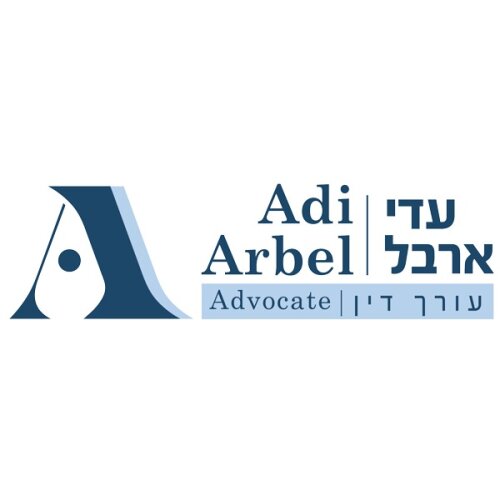Best Arrests & Searches Lawyers in Jerusalem
Share your needs with us, get contacted by law firms.
Free. Takes 2 min.
List of the best lawyers in Jerusalem, Israel
About Arrests & Searches Law in Jerusalem, Israel
Arrests and searches are fundamental aspects of law enforcement designed to maintain public order and ensure safety. In Jerusalem, Israel, these procedures are governed by various laws and regulations that aim to balance state security with individuals' rights. While law enforcement agencies have the authority to detain and search individuals under specific circumstances, such actions must comply with legal standards to protect citizens from unlawful practices.
Why You May Need a Lawyer
Legal advice is often necessary in matters related to arrests and searches for several reasons:
- Understanding Your Rights: Individuals arrested or subjected to searches may not be fully aware of their legal rights and protections.
- Unlawful Practices: If you believe that a search or arrest was conducted unlawfully, a lawyer can help challenge the legality and possibly get evidence suppressed.
- Legal Representation: In cases leading to criminal charges, having an experienced lawyer can provide essential representation and advocacy.
- Complex Procedures: Legal processes involving arrests and searches can be complex and require expert navigation to ensure the best outcomes.
Local Laws Overview
In Jerusalem, several key laws govern arrests and searches, including:
- Criminal Procedure Ordinance (Arrests and Searches), 1969: This law outlines the powers of the police regarding arrests and searches, including circumstances that permit these actions and the requisite procedures.
- Basic Law: Human Dignity and Liberty, 1992: Protects individual rights, ensuring that any deprivation of liberty or property must adhere to legal standards and be executed appropriately.
- Searches Without a Warrant: Certain conditions allow police to conduct searches without a warrant, such as immediate threats or in pursuit of a suspect, but such actions must meet stringent criteria to be lawful.
- Rights During Arrest: Those arrested have the right to legal counsel, to be informed of the reasons for their arrest, and to contact family members or employers.
Frequently Asked Questions
1. What should I do if I am arrested in Jerusalem?
Remain calm, avoid resisting, and assert your right to speak with a lawyer immediately. Do not provide more information than necessary until you have legal counsel present.
2. Can police search my home without a warrant?
Generally, police need a warrant to search a home. However, exceptions exist if they believe immediate action is required to prevent danger, find a suspect, or secure evidence.
3. What documents should I carry to avoid issues during a search?
Always carry valid identification, such as an ID card or passport, to assist law enforcement in verifying your identity quickly.
4. Are there specific rights I should be aware of during an arrest?
Yes, you have the right to remain silent, the right to know why you are being arrested, and the right to legal representation.
5. Can I refuse a search if I believe it is unjustified?
You can verbally express your non-consent to a search, but do not physically resist. It is crucial to seek legal advice to challenge any potentially unlawful searches after the fact.
6. What happens if I'm arrested without immediate access to a lawyer?
You should still request legal representation as soon as possible and avoid making statements that could be used against you until you have counsel.
7. How can I prove that a search was conducted unlawfully?
Document everything you remember about the search and gather any evidence, such as witness testimonies. A lawyer can then use this information to challenge the legality of the search in court.
8. Can police detain me for questioning without an arrest?
Police can detain you for questioning under certain conditions, but they must inform you of your rights and the reason for questioning.
9. Should I cooperate with the police during a search?
While you should not obstruct a search to avoid additional charges, it is within your rights to respectfully note your non-consent to the search without physically intervening.
10. What can a lawyer do for me if I've been wrongfully searched or arrested?
An experienced lawyer can file complaints, challenge the admissibility of obtained evidence, and represent you in court to ensure your rights are protected.
Additional Resources
Here are some resources and organizations that can provide further assistance:
- Israel Bar Association: Offers a directory of licensed lawyers specializing in various fields, including arrests and searches.
- Public Defender's Office: Provides legal defense services to those who cannot afford private representation.
- Moked: A 24-hour hotline offering legal assistance and resources for individuals detained or arrested.
- ACRI (Association for Civil Rights in Israel): An NGO that protects civil rights in Israel, including legal resources and support.
- Ministry of Justice: Oversees the enforcement of laws and provides legal information and services to the public.
Next Steps
If you need legal assistance regarding an arrest or search in Jerusalem, it is crucial to act promptly. Here are the recommended steps:
- Contact a Lawyer: Seek out a lawyer specializing in criminal law to get immediate advice and representation.
- Document Everything: Record the details of the arrest or search, including the officers' names and badge numbers, the time and location, and any other relevant information.
- Know Your Rights: Familiarize yourself with your legal rights to better understand how to respond in such situations.
- File a Complaint: If you believe your rights were violated, consult with your lawyer about filing a complaint with the relevant authorities or human rights organizations.
- Seek Support: Reach out to organizations that can provide additional resources and support during this process.
Lawzana helps you find the best lawyers and law firms in Jerusalem through a curated and pre-screened list of qualified legal professionals. Our platform offers rankings and detailed profiles of attorneys and law firms, allowing you to compare based on practice areas, including Arrests & Searches, experience, and client feedback.
Each profile includes a description of the firm's areas of practice, client reviews, team members and partners, year of establishment, spoken languages, office locations, contact information, social media presence, and any published articles or resources. Most firms on our platform speak English and are experienced in both local and international legal matters.
Get a quote from top-rated law firms in Jerusalem, Israel — quickly, securely, and without unnecessary hassle.
Disclaimer:
The information provided on this page is for general informational purposes only and does not constitute legal advice. While we strive to ensure the accuracy and relevance of the content, legal information may change over time, and interpretations of the law can vary. You should always consult with a qualified legal professional for advice specific to your situation.
We disclaim all liability for actions taken or not taken based on the content of this page. If you believe any information is incorrect or outdated, please contact us, and we will review and update it where appropriate.













